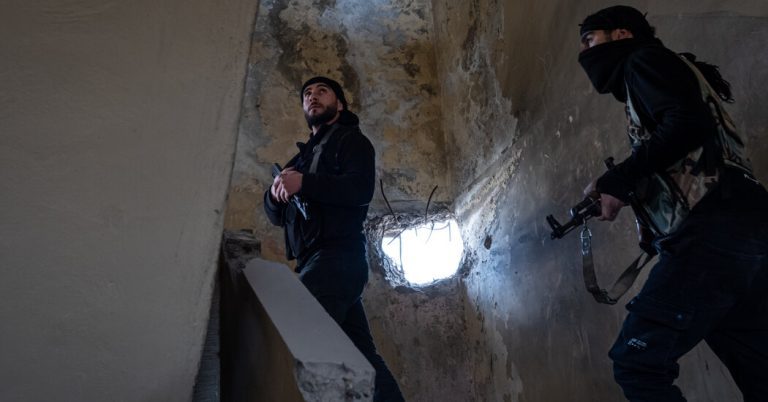As Western diplomats probe ties with the rebels who seized power in Syria, a religious minority is making its own diplomatic push to secure protection for its members as the country rebuilds.
A representative of the group, the Druse, recently went to Washington to meet with lawmakers, members of the Biden and Trump administrations and diplomats to make their case.
“We are very worried about the future,” Sheikh Muwafak Tarif said in an interview in Washington, where he urged US officials to prioritize protecting Syria’s 1.2 million Druse as part of their engagement with the country’s new government.
In December, after a long civil war, a coalition of Syrian rebels ousted President Bashar al-Assad and established an interim government. The uprising ended a brutal regime, but for Western nations a problem remained: the Islamist group that led the insurgency once had ties to al-Qaeda and the Islamic State, and was therefore officially designated a terrorist organization.
Rebel leaders have sworn off their old alliances and vowed to build a Syria that is tolerant of other beliefs. And Western officials, eager to begin rebuilding, have expressed a willingness to work with the Islamist group now in power, Hayat Tahrir al-Sham.
However, members of Syrian minorities such as the Druse, who practice a branch of Shiite Islam and can also be found in Lebanon, Israel and Jordan, remain skeptical. The spiritual leader of the Druse in Syria, Sheikh Hikmat al-Hajari, expressed caution in a recent interview with a German television network about the promises of tolerance offered by Syria’s de facto leader, Ahmad al-Shara.
Sheikh Tarif, his counterpart in Israel, suggested that Mr. al-Sara was not moving fast enough.
“He speaks beautifully,” said Sheikh Tarif. “What I’m hearing is that the West is excited and they like what he’s saying. But there is great fear among minorities. We want the statements to be confirmed with actions.”
Mr. al-Shara has tried to distance himself from his group’s jihadist roots, promising to draft a new constitution, expressing relatively moderate political positions and seeking to appease Syria’s minorities. In the Sweida region in the south, for example, a Druse woman was recently appointed governor.
However, some observers have suggested that Mr. al-Shara may engage in mere posturing to open the flow of foreign aid. Already, some moves by his new government – such as sweeping changes to textbooks – have raised concerns in Syria about his stated commitment to religious diversity.
Sheikh Tarif said that in his meetings with Western officials, he was pushing for much-needed economic aid for Syria and for the lifting of sanctions imposed on the country — but only on the condition that the new government honors its commitments. He said he is also trying to position the Druze community in Syria and across the Middle East as key partners for Western nations aiming to influence outcomes in the country and the region.
For centuries, the Druse have survived throughout the Middle East in part by integrating politically into the countries where they live, even while keeping their religious practices distinct. In Syria, they have played an important historical role, leading an uprising against French rule in 1925 that became the nation’s first nationalist uprising.
“The Druse paid a high price for the independence of Syria,” said Sheikh Tarif.
When the uprising against the Assad regime began in 2011, some Druze aligned themselves with rebel groups, although community support was mixed, with concerns that jihadist groups fighting the regime would prove hostile to their beliefs. Druse fighters took part in the rebel offensive that overthrew Mr. al-Assad.
In Israel, the Druse community of about 150,000 people led by Mr. Tarif has protested in recent years about the adoption by the far-right government of a law that marginalizes minorities. “There is a lot to improve,” he said. However, Mr. Tarif rejected criticism of recent moves by the Israeli military to seize territory in Syria near its border, saying Israel was acting to ensure its own security.
He noted that Druse commanders and soldiers had died fighting as members of the Israeli army in the clashes that began with the Hamas-led attack on Israel on October 7, 2023, and recalled the deaths of 12 young Druse men last summer in the Israeli-controlled Golan Heights killed by Hezbollah missile from Lebanon.
Given their presence in many nations, Sheikh Tarif said, the Druze see themselves as a potential bridge. “We can show how to live peacefully,” he said.




